Running a successful ecommerce business is more than just selling products online. Managing customer data, tracking customer interactions, and building strong relationships are key to driving business growth. That’s where ecommerce CRM software comes in. A great CRM system can streamline sales processes, centralize customer data, and help your team stay on top of customer inquiries and support. For ecommerce businesses, it’s all about finding the perfect balance between managing customer interactions and optimizing sales and marketing efforts.
In this guide, we’ll explore the top ecommerce CRM tools designed to enhance customer relationship management for both small businesses and large enterprises. We’ll cover their key features, scalability, and how they integrate with your existing ecommerce platform. Whether you’re looking for a solution to improve marketing automation, track customer trends, or manage your sales pipeline, the CRMs in this list can help you achieve your goals. Stick around to discover the best ecommerce CRM software to grow your online store and take your customer relationships to the next level.
Criteria for Choosing the Best Ecommerce CRM Software
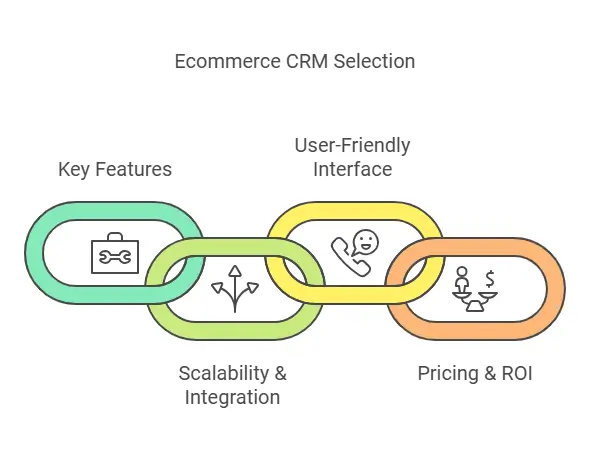
Not all CRMs are built the same, especially when it comes to the needs of ecommerce businesses. Before diving into the top ecommerce CRM platforms, let’s look at the criteria you should consider while making your choice.
1. Key Features
The best CRMs offer a comprehensive suite of tools for managing customer interactions, tracking customer trends, and optimizing your sales pipeline management. Look for features like:
- Robust contact management for handling unlimited customer data.
- Tools to track customer interactions across multiple channels.
- Personalized marketing campaigns powered by marketing automation.
- Sales automation to streamline your sales processes and close deals faster.
- A customer support portal to handle inquiries efficiently.
2. Scalability and Integration
A good CRM should grow with your business. Whether you’re running a small shop or a thriving enterprise, choose a scalable solution that can handle increasing data and sales management needs. Check for seamless integration with your existing ecommerce platform, accounting software, and marketing tools like email marketing and social media management.
3. User-Friendly Interface
Your team needs a CRM that’s easy to learn and navigate. A user-friendly interface can save time and reduce training costs, letting your team focus on enhancing customer engagement instead of struggling with complex systems.
4. Pricing and ROI
Cost matters, especially for small and medium businesses (SMBs). Compare CRM pricing plans to find a solution that fits your budget without compromising on essential features. Look for flexible pricing options and consider how the CRM will improve your sales performance and business processes over time.
By focusing on these factors, you can find a CRM that aligns with your needs and helps you manage customer relationships while supporting your business growth.
Desku – AI Powered E-commerce CRM for Smarter Customer Engagement
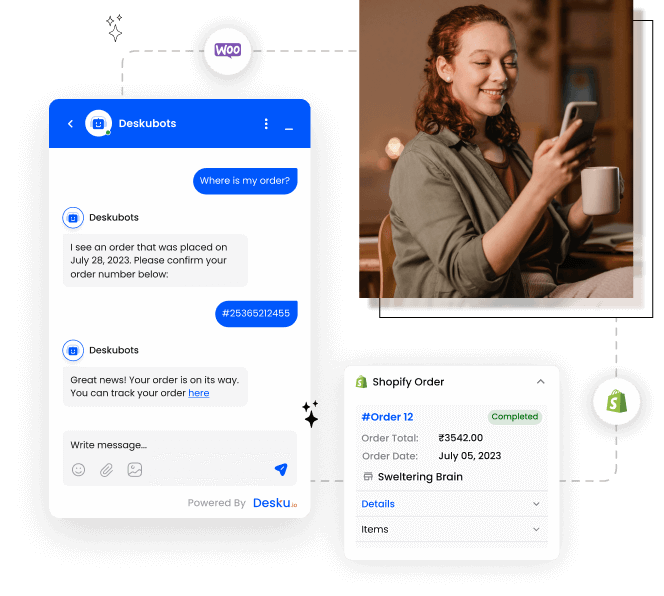
When it comes to managing customer interactions, automating support, and enhancing sales, Desku.io stands out as a powerful AI-driven CRM tailored for e-commerce businesses. It combines AI automation, a unified inbox, and seamless integrations to help online stores streamline customer service and improve retention.
Key Benefits of Desku.io for E-commerce:
✅ OmniChannel Support – Manage conversations from email, live chat, WhatsApp, Facebook, and Instagram in one place.
✅ AI Chatbots & Automation – Automate responses, reduce workload, and provide 24/7 support.
✅ Shopify & WooCommerce Integration – Sync customer data, order details, and CRM interactions for personalized engagement.
✅ AI Co-Pilot for Teams – Empower support agents with AI-driven suggestions, reducing response times.
✅ No-Code Automations – Create workflows to auto-assign tickets, send follow-ups, and trigger actions based on customer queries.
Why Desku.io?
Unlike traditional CRMs, Desku.io is built with e-commerce businesses in mind, offering AI-powered automation at an affordable price. It helps brands convert more customers, reduce support costs, and enhance CX effortlessly.
🚀 Ready to transform your customer experience?
Top 7 Ecommerce CRM Software for Business Growth
Here’s a breakdown of the top ecommerce CRM tools that can help your business thrive. Each platform offers unique features to improve customer relationship management, streamline sales processes, and drive your marketing efforts.
1. HubSpot CRM
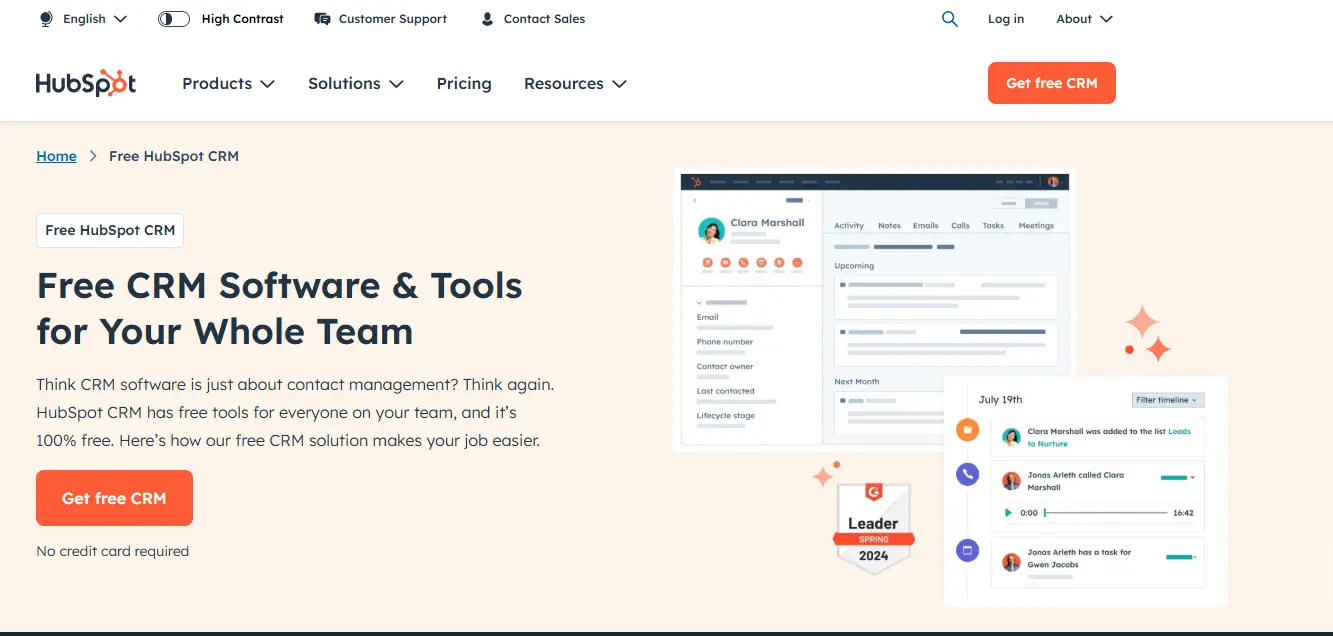
HubSpot CRM is one of the most popular CRM platforms, offering a comprehensive suite of tools to manage customer data and boost customer engagement.
Key Features:
- Free plan with unlimited contact management.
- Built-in tools for email marketing, social media, and sales automation.
- Easy-to-use customer support portal for managing inquiries.
- Detailed analytics for making data-driven decisions.
Best For: Businesses looking for a user-friendly interface with robust features at an affordable price.
2. Zoho CRM

Zoho CRM is a versatile option, ideal for ecommerce businesses aiming to enhance customer relationships and automate sales and marketing.
Key Features:
- Advanced sales pipeline management and automation.
- Tools for tracking customer interactions and trends.
- Integrations with major ecommerce platforms and accounting software.
- Customizable dashboards for managing business processes.
Best For: Teams that want an affordable, scalable, and highly customizable CRM.
3. Salesforce Commerce Cloud
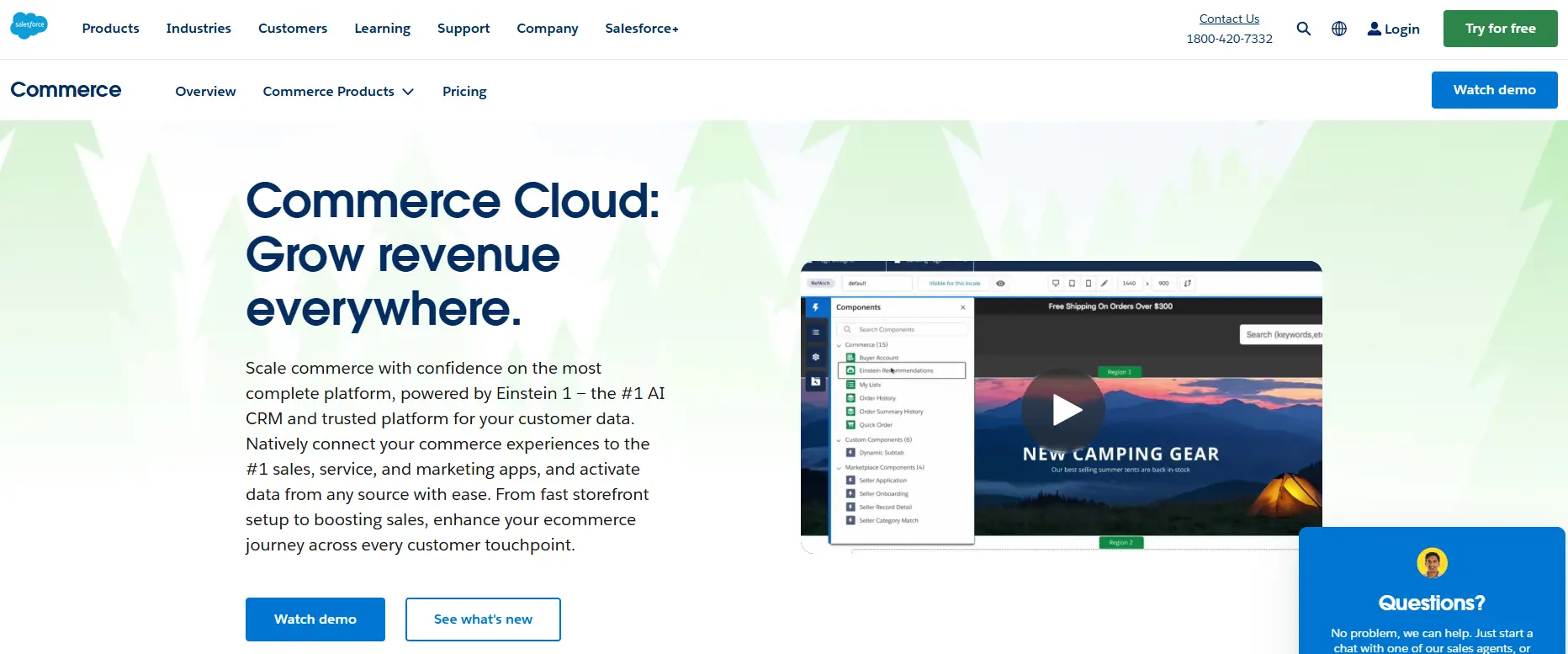
Salesforce is a leading name in CRM solutions, offering powerful tools for commerce businesses to manage customer service activities and boost online sales.
Key Features:
- Comprehensive marketing automation and AI-powered analytics.
- Integration with leading ecommerce platforms for seamless operations.
- Scalable options for businesses of all sizes.
- Robust tools for customer tracking and personalized campaigns.
Best For: Large businesses looking for a scalable solution with enterprise-level capabilities.
4. Pipedrive
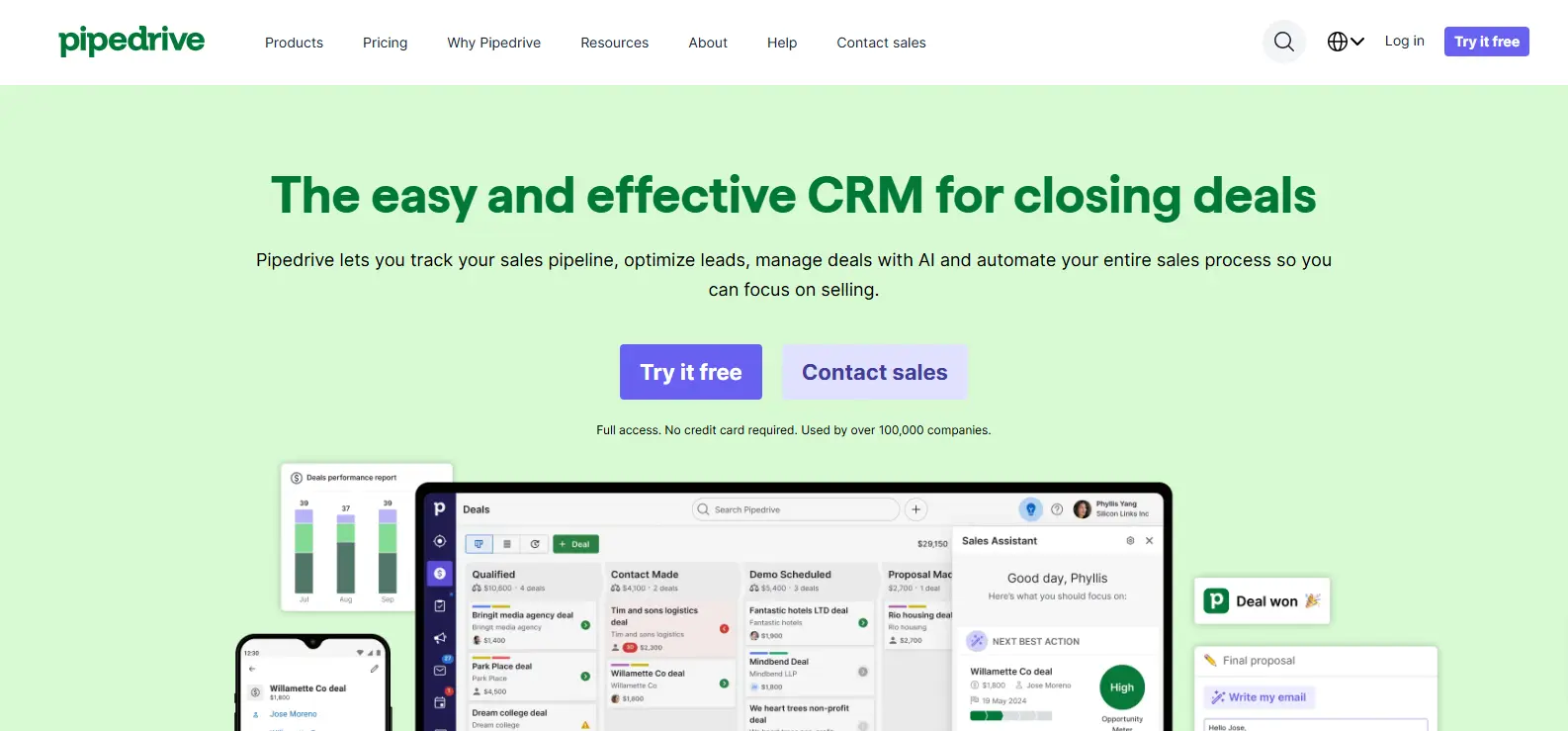
Pipedrive is a CRM platform that specializes in sales pipeline management, making it a great choice for businesses focused on sales processes and closing deals efficiently.
Key Features:
- Visual sales pipeline for tracking deals at every stage.
- Integration with tools for email marketing and social media.
- Automates repetitive tasks to streamline operations.
- Mobile app for managing customer interactions on the go.
Best For: Sales-driven teams that prioritize deal management and sales performance.
5. Freshsales by Freshworks
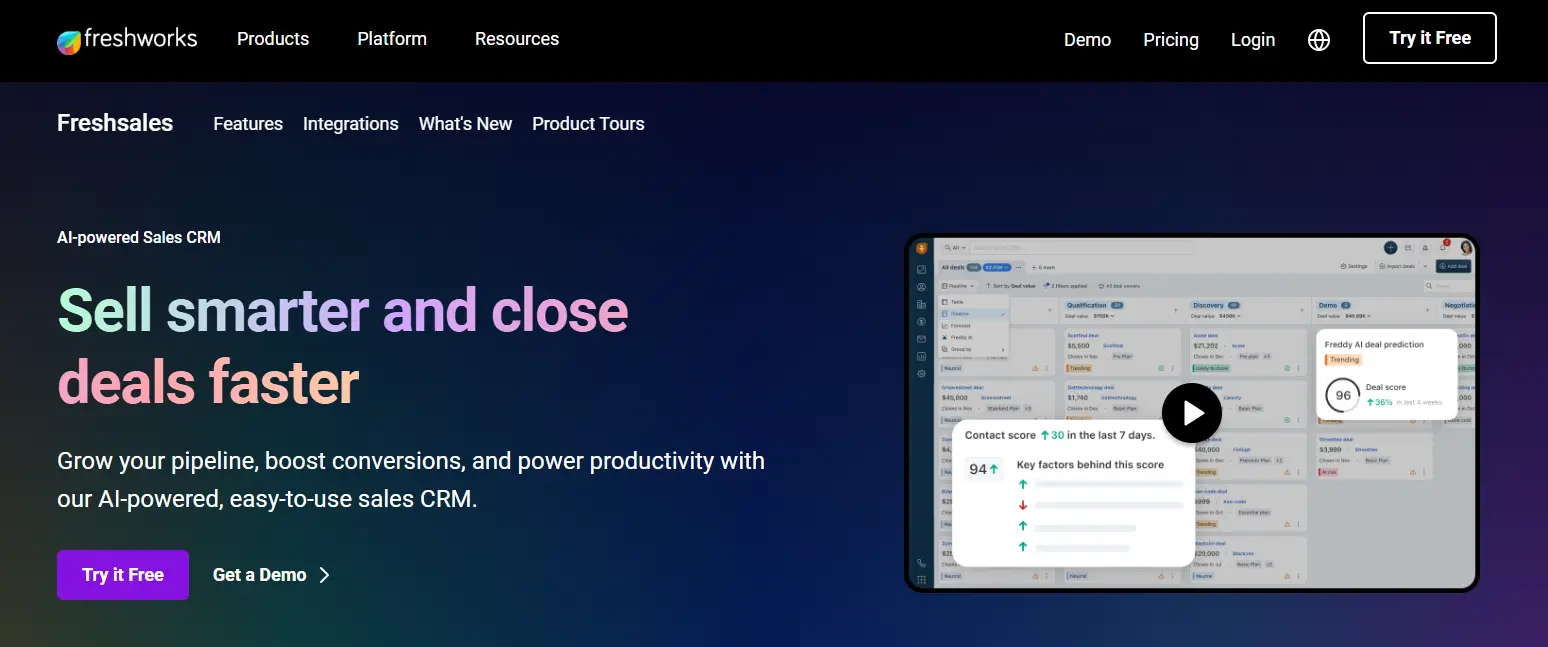
Freshsales offers a user-friendly interface with a focus on managing customer interactions and automating sales tasks.
Key Features:
- AI-powered insights to predict customer behavior and trends.
- Tools for personalized marketing campaigns and customer engagement.
- Easy integration with popular tools like Shopify and QuickBooks.
- Scalable options for growing businesses.
Best For: Small and medium businesses needing a cost-effective, easy-to-use solution.
6. Monday.com CRM
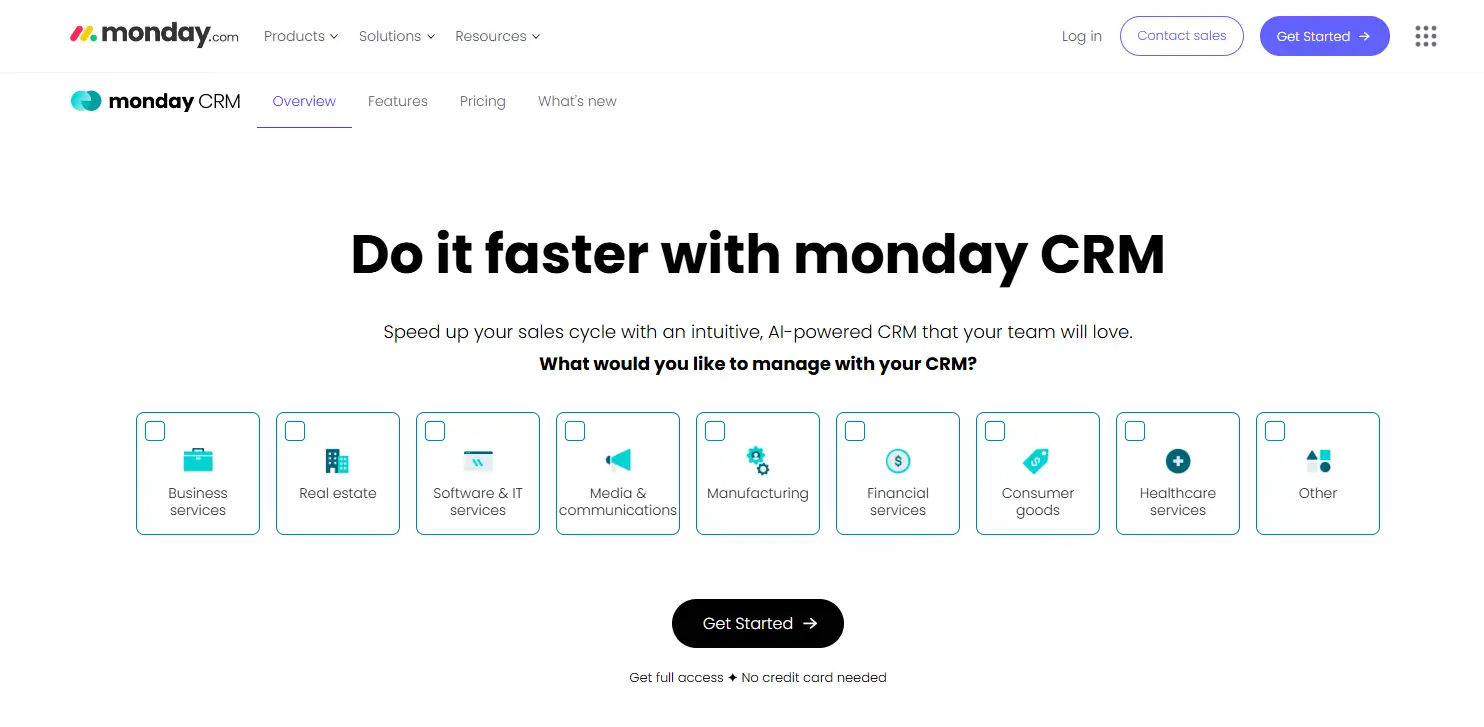
Monday.com is a highly visual and flexible CRM that allows teams to manage customer data and collaborate effectively.
Key Features:
- Custom workflows for managing sales and marketing processes.
- Intuitive dashboards for tracking customer interactions and trends.
- Integration with major ecommerce platforms and tools.
- Collaborative features for customer support and project management.
Best For: Teams that need a CRM for managing both customer relationships and team projects.
7. Agile CRM
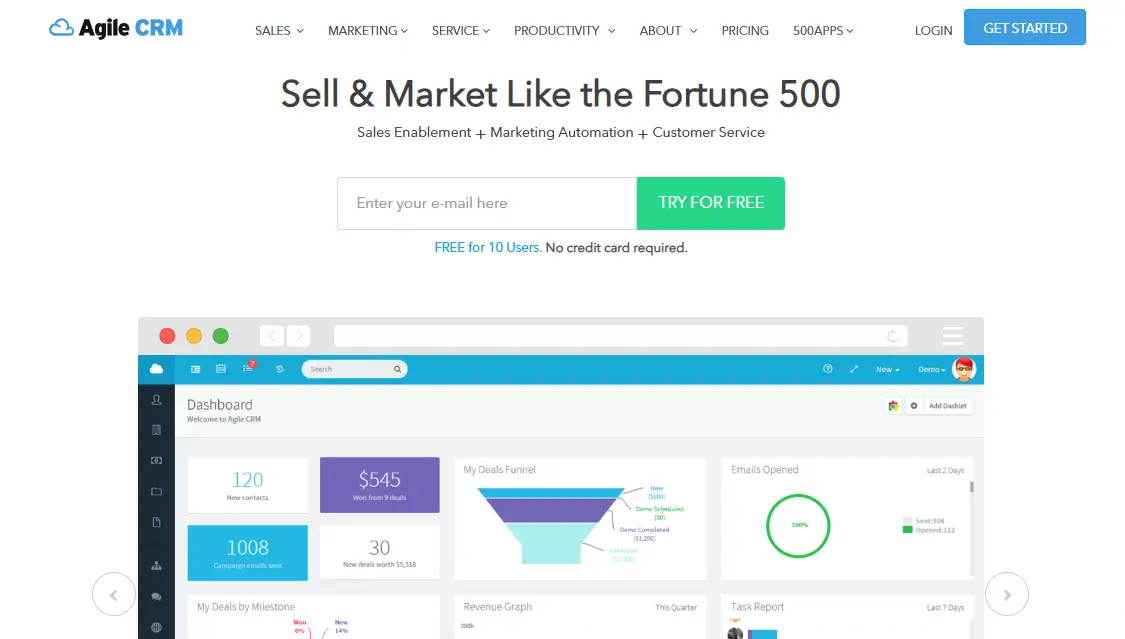
Agile CRM offers a powerful all-in-one solution for managing customer service processes, sales automation, and marketing efforts.
Key Features:
- Tools for tracking current and potential customers.
- Marketing tools like social media management and email automation.
- Seamless integration with ecommerce tools and platforms.
- Customizable contact and data tracking options.
Best For: Businesses looking for an affordable, feature-rich CRM for online stores.
These top ecommerce CRM platforms can help your business manage customer interactions, optimize sales processes, and improve customer service activities. Whether you’re a startup or a well-established business, there’s a solution here for your needs.
How Ecommerce CRMs Drive Business Growth
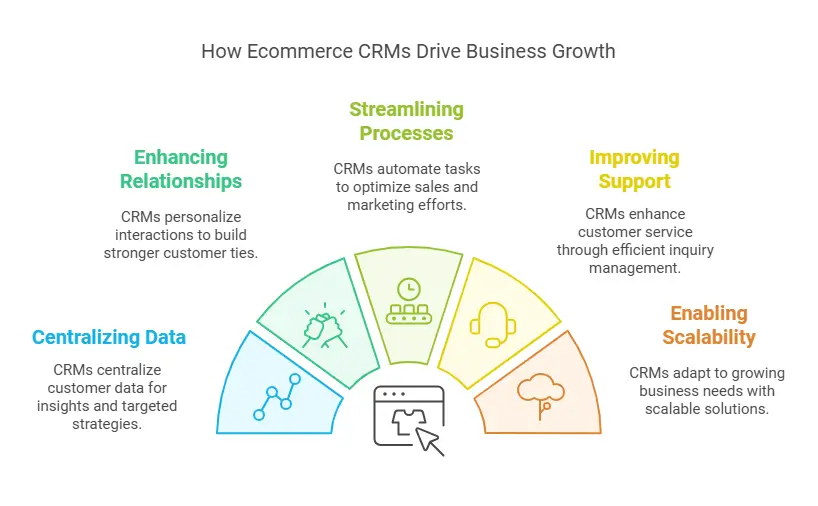
A well-chosen ecommerce CRM software does more than just organize data. It actively enhances business processes, improves customer engagement, and drives online sales. Here’s how CRMs contribute to business growth for ecommerce companies.
1. Centralizing Customer Data for Better Insights
CRMs help ecommerce businesses gather and organize customer data in one place. This centralized approach allows teams to:
- Track current and potential customers’ buying behavior.
- Identify trends to create data-driven decisions.
- Access detailed histories of customer interactions to improve personalization.
Having a clear view of customer information streamlines business processes and helps businesses better target their marketing and sales strategies.
2. Enhancing Customer Relationships Through Personalization
By leveraging tools like marketing automation and personalized marketing campaigns, CRMs enable businesses to:
- Build stronger customer relationships with tailored offers.
- Use email marketing and social media tools to engage audiences effectively.
- Provide timely follow-ups and nurture leads with automated reminders.
Personalization drives customer engagement, which leads to higher retention rates and loyalty.
3. Streamlining Sales and Marketing Processes
CRMs simplify sales pipeline management and help businesses stay organized:
- Automating repetitive tasks like lead scoring and follow-up emails.
- Tracking leads through the sales pipeline to ensure no opportunity is missed.
- Providing analytics to optimize sales and marketing efforts.
For sales teams, this means more time to focus on closing deals and building customer trust.
4. Improving Customer Support and Service
An ecommerce CRM platform centralizes customer service activities, enabling support teams to handle inquiries quickly and efficiently.
- Dedicated tools for managing customer inquiries in real-time.
- Tracking issues across multiple touchpoints for consistent support.
- Providing self-service options like a customer support portal to reduce response times.
This leads to smoother customer service processes and happier customers.
5. Enabling Scalability for Growing Businesses
As businesses grow, so do their operational needs. The right CRM can scale alongside your business, ensuring it continues to support your expanding operations:
- Handling large volumes of data without compromising speed or performance.
- Adding new features or integrations as needed.
- Supporting teams as they expand across regions or markets.
Ecommerce CRM tools are a game-changer for managing and growing online stores. They not only improve operational efficiency but also foster long-lasting customer connections, fueling sustained business growth.
Conclusion: Choosing the Best Ecommerce CRM Software for Your Business
Selecting the right ecommerce CRM software can transform how you manage customer relationships, improve your sales processes, and streamline your marketing efforts. The top ecommerce CRM tools we’ve explored—like HubSpot, Zoho, and Salesforce—offer robust features for businesses of all sizes, ensuring you’ll find a fit for your unique needs.
Remember, the key is to align the CRM’s features with your business goals:
- Centralize customer data to make smarter decisions.
- Improve customer interactions with personalization.
- Optimize sales pipeline management to close deals faster.
- Scale your operations with a CRM that grows with your business.
Whether you’re a small business owner, a customer support manager, or leading a large team in a fast-growing ecommerce venture, the right CRM can be a powerful tool for driving business growth and fostering customer engagement.
Ready to elevate your customer service processes and drive more online sales? Explore these CRM software solutions and start building stronger customer relationships today.
FAQs: Answering Your Questions About Ecommerce CRM Software
1. What is ecommerce CRM software?
It’s a tool designed for ecommerce businesses to manage customer data, interactions, and improve sales and marketing processes. It helps streamline operations, enhance personalization, and drive growth.
2. Which is the best CRM for small ecommerce businesses?
Platforms like HubSpot and Zoho CRM are ideal for small businesses due to their affordability, scalability, and ease of use. Both offer user-friendly interfaces and essential tools like sales automation and marketing tools.
3. How does a CRM help with customer service?
CRMs centralize customer inquiries and provide tools for faster resolutions, such as a customer support portal. They also track issues across multiple channels to ensure consistent support.
4. What features should I look for in an ecommerce CRM?
Look for contact management, sales pipeline tracking, marketing automation, and seamless integration with your ecommerce platform. Scalability and data security are also important considerations.
5. Can a CRM integrate with my ecommerce platform?
Yes, most CRM platforms offer seamless integration with major ecommerce tools like Shopify, WooCommerce, and Magento. This ensures smooth data synchronization across your systems.


